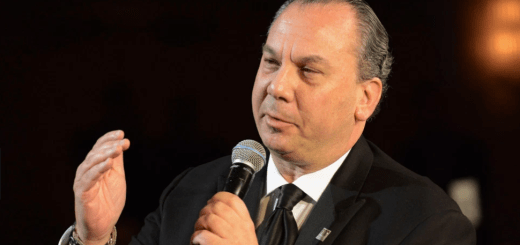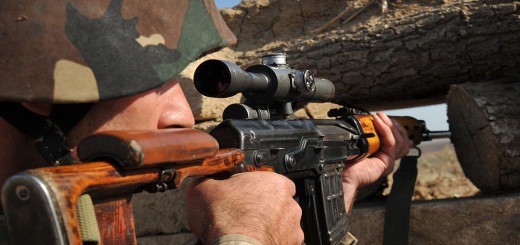Saudi Arabia Should Sue Turkey For Stealing Prophet Muhammad’s Relics
The Arab News published on March 28 an article titled, “Book by Saudi author unravels Ottoman atrocities in Madinah.” The book was written by Saudi historian Muhammad Al-Saeed who exposed Ottoman atrocities against the Muslim population of the holy city of Madinah in Saudi Arabia in 1918 when it was part of the Ottoman Empire.
Al-Saeed, in his book, “Seferberlik: A Century on from the Ottoman crime in Madinah,” tells the seldom-known story of the deportation and killings of the population of Madinah by Ottoman General Fakhri Pasha. The city was pillaged and its holy relics looted by the Ottoman army.
The journalist of the Arab News article, Mohammed Al-Sulami, explained that even though some historians use the Turkish/Arabic word ‘Seferberlik — meaning mobilization or collective deportation — when referring to the Armenian Genocide, this term is also used to refer to the mass displacement of the population from Madinah.
Fakhri Pasha laid siege to Madinah when the city was under attack by the British-backed Arab fighters of Hussein bin Ali, the Sharif of Makkah. Fakhri Pasha deported 40,000 people from Madinah by trains to present-day Syria, Turkey, and Iraq, abandoning them to their fate. Only 140 residents remained in Madinah who suffered from famine.
Furthermore, the Ottoman army removed the valuable personal effects of Prophet Muhammad from his sacred chamber and smuggled them to Constantinople (Istanbul). Fakhri Pasha converted the Prophet’s mosque into a weapons depot, thus endangering the tomb of the Prophet. Fakhri Pasha also demolished many buildings, starved the remaining population of Madinah and confiscated their possessions, such as farms and crops, reserving the food for his soldiers.
“The stolen treasures arrived in Constantinople, the Ottoman Empire’s capital, and have been on display for many years at the Topkapi Museum,” author Al-Saeed said. The Arab News article explained that the stolen holy relics included “old copies of the Quran, jewelry, golden candlesticks and swords. Besides the 390 artifacts, visitors to the [Topkapi] museum can see the following possessions of Prophet Muhammad: the Blessed Mantle, the Holy Banner, his sword and bow, a jar, a piece of his tooth and a hair from his beard.”
Al-Saeed also revealed that “Fakhri Pasha even attempted to have the body of Prophet Muhammad exhumed and shipped to Constantinople. An Egyptian engineer, who was summoned to Madinah to modify the minarets of the Prophet’s Mosque to support the weight of Ottoman artillery, claimed he was ordered to open the tomb, but he refused. Fakhri Pasha asked for his help to exhume the body of the prophet and move it to Constantinople, according to the historical documents written by the French representative in Cairo and sent to the Ministry of Foreign Affairs. The French representative vouched for the account of the Egyptian engineer, who fled the city and did not carry out the crime, thus confirming that the grave in question did indeed house the prophet’s body and the goal was to move the body to Constantinople.”
Al-Saeed told the Arab News that “Madinah reached the point of famine, forcing its citizens and orphaned children to eat cats, dogs and what remained on the farms and in the streets.”
Importantly, Al-Saeed said he wrote about the Ottoman Empire’s atrocities in Madinah “because he believes modern Turkey is trying to whitewash its imperial past. He plans to translate his book into several languages to raise awareness of this little-known chapter of Ottoman history.”
Al-Saeed further said: “I wrote an article in 2015 about the passage of 100 years since this crime and provided details that few people knew about. Reactions to the article varied between people shocked at the information and those who could not believe it, given the Turkish publicity ahead of its publication which attempted to whitewash the Ottoman Empire’s ugliness and its heinous crimes against Arabs. The public was oblivious to the Ottoman crimes. Following the article, the idea of documenting the event was established, so that history would not forget it like other events in Arab history, particularly since the few historical sources that documented Seferberlik are in the Ottoman, English and French archives. Moreover, the sources of information are very limited and the grandchildren of those who were in Madinah at the time do not have many documents. A lot of the city’s inhabitants were displaced. Many of them did not return.”
In a second publication, Saudi Arabia’s ‘Okaz’ newspaper, Saudi journalist Khaled Abbas Tashkandy, wrote in a 2017 article that “his own grandfather was one of the victims of the mass and forced displacement crimes of the people and sons of Madinah by the orders of the military governor Fakhri Pasha during the Seferberlik and how the Turkish soldiers broke into his family’s house and kidnapped him from his mother’s arms and deported him to Astana.” The Saudi journalist confirmed the details of the persecution of the people of Madinah by Fakhri Pasha and the looting of Prophet Muhammad’s personal effects.
In a third publication, The NewArab published an article by Kemal Afzali on March 11, titled: “Saudis claim last Ottoman governor planned to ‘steal Prophet Muhammad’s body.’” This article “provoked uproar among Saudi social media users, many of whom believe it to be characteristic evidence of alleged Turkish animosity towards the Kingdom’s holy cities.” The Arabic hashtag #desecration_ of_the_prophets_grave has appeared in over 7,500 posts on Twitter and Facebook as of early March. Many Saudis have decried “the historic act of ‘Turkish blasphemy.’” Some have drawn parallels between Fakhri Pasha’s barbaric actions and Pres. Erdogan’s “contemporary support for ‘insurgent activity against Arab states.’” One social media post read: “Turks are a nation of thieves. They are bandits and criminals.”
It is incomprehensible to me that the Kingdom of Saudi Arabia, after more than a Century, has not demanded that the Turkish government return the looted sacred relics of Prophet Muhammad. While Turkey brazenly demands that museums in other countries return antiques that were taken out of Turkey, even though many of these items are of Greek or Armenian origin, the Turkish government has not returned the stolen Saudi artifacts. Should Turkey refuse to do so, Saudi Arabia should file a lawsuit against Turkey in the World Court and publicize the Turkish theft worldwide.
In the past, Turkey and Saudi Arabia enjoyed normal or friendly relations, but that is not the case now. Due to Pres. Erdogan’s dictatorial and military actions in some parts of the world, Turkey and Saudi Arabia are on the opposite sides of various disputes. As a result, Saudi Arabia has blocked the transmission of Turkish programs from its TV stations and has banned the import of Turkish products. This is the right time for Saudi Arabia to act more decisively against Turkey and demand the return of the sacred religious items belonging to the Kingdom. The display of Prophet Muhammad’s personal effects in a Turkish museum is an insult to all Arabs and all Muslims worldwide. These sacred items belong to Saudi Arabia.







